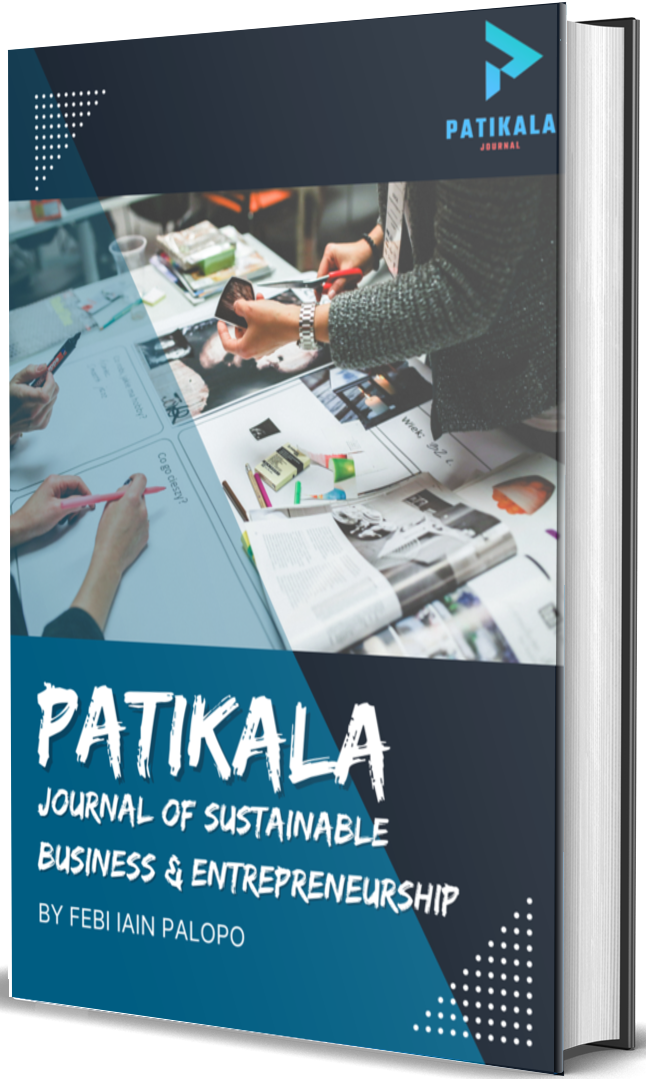Coastal Area Management Strategy Towards a Green Economy
Abstract
Purpose: This study aims to find out what the government's strategy is in managing coastal areas in the Bawahukan sub-district and what obstacles are faced by the government in managing coastal areas towards a green economy in Lebatukan District, Lembata Regency, NTT Province. Design/methodology/approach: This type of research is a qualitative research with 16 informants. Findings: Based on the research conducted, it shows that the government has carried out many policies or strategies in managing the coastal area of the lebatukan sub-district such as carrying out community-based management, opening tourist villages, conducting mangrove rehabilitation, supervising fishing fishermen, issuing prohibitions on destroying and logging mangroves and reviving Muro traditions. Originality: This research is a continuation of previous research but has differences from previous research which researchers found where policies or strategies related to the management of the coastal area of the Tatukuk sub-district towards a green economy are now starting to be developed. Research Limitations/implication: Judging from the extent of the place/location of research, the researcher tries to limit the scope so that the writer is not bound by the amount of information and data collected from the research location. This study focuses on information collected at research locations that are directly relevant to the subjects studied. Practical & social implications: The results of this research can theoretically and conceptually contribute as a reading list for further research. In addition, the results of this research are expected to be used as learning and information for the community regarding the importance of protecting the environment in coastal areas and how to manage natural resources properly and correctly.References
Albi Anggito, J. S. (2018). Metodologi penelitian kualitatif - Albi Anggito, Johan Setiawan. In CV . Jejak.
Amin, A., & Purnomo, T. (2021). Biomonitoring Kualitas Perairan Pesisir Pantai Lembung, Pamekasan Menggunakan Bioindikator Fitoplankton. LenteraBio : Berkala Ilmiah Biologi. https://doi.org/10.26740/lenterabio.v10n1.p106-114
Ari Atu Dewi, A. A. I. (2018). Model Pengelolaan Wilayah Pesisir Berbasis Masyarakat: Community Based Development. Jurnal Penelitian Hukum De Jure, 18(2), 163. https://doi.org/10.30641/dejure.2018.v18.163-182
Basri, H. (2021). Pengelolaan, Pengawasan Kawasan Pesisir dan Laut di Indonesia. REUSAM: Jurnal Ilmu Hukum. https://doi.org/10.29103/reusam.v8i2.3713
Bennett, J. W. (1991). Economics of Natural Resources and the Environment / D.W. Pearce, D. W., R. K. Turner. Baltimore. American Journal of Agricultural Economics.
Dianjaya, A. R., & Epira, P. (2020). Indonesia Green Economy Implementation Readiness of Greenhouse Gas Emissions Reduction. Journal of Contemporary Governance and Public Policy. https://doi.org/10.46507/jcgpp.v1i1.5
Faried, A. I. (2020). Analisis Meredam Angka Kemiskinan Melalui Pendekatan Ekonomi Hijau di Desa Pahlawan Kecamatan Tanjung Tiram Kabupaten Batu Bara. Ekonomikawan: Jurnal Ilmu Ekonomi Dan Studi Pembangunan. https://doi.org/10.30596/ekonomikawan.v20i1.3425
Helmi, A., & Satria, A. (2012). STRATEGI ADAPTASI NELAYAN TERHADAP PERUBAHAN EKOLOGIS. Makara Human Behavior Studies in Asia, 16(1), 68. https://doi.org/10.7454/mssh.v16i1.1494
JAMAL, F. (2019). PERAN PEMERINTAH DAERAH DALAM PENGELOLAAN WILAYAH PESISIR. Rechtsregel : Jurnal Ilmu Hukum, 2(1). https://doi.org/10.32493/rjih.v2i1.2981
Kamus Besar Bahasa Indonesia. (2008). Pusat Bahasa Departemen Pendidikan Nasional.
Katiandagho, F. G. O. (2020). ASPEK HUKUM PENGELOLAAN PEMBANGUNAN WILAYAH PESISIR DAN PULAU-PULAU KECIL TERLUAR MENURUT UNDANG-UNDANG NOMOR 1 TAHUN 2014 TENTANG PERUBAHAN ATAS UNDANG-UNDANG NOMOR 27 TAHUN 2007 TENTANG PENGELOLAAN WILAYAH PESISIR DAN PULAU-PULAU KECIL. LEX ET SOCIETATIS. https://doi.org/10.35796/les.v8i1.28476
Kementerian Keuangan Republik Indonesia. (2021). Ekonomi Hijau untuk Masa Depan Peradaban. Media Keuangan.
Ketchum, B. H. (1972). The water edge: critical problems of the coastal zone. MIT PRESS.
Kristian, I. (2021). Pengelolaan Wilayah Pesisir Secara Terpadu Dan Berkelanjutan Yang Berbasis Masyarakat. Jurnal RASI, 1(1), 49–63. https://doi.org/10.52496/rasi.v1i1.29
Loka, T. (2016). Model Mitigasi Bencana Di Wilayah Pesisir Dengan Pemberdayaan Masyarakat. Tataloka, 14(3), 201–212.
Marasabessy, I., Fahrudin, A., Imran, Z., & Agus, S. B. (2018). Strategi Pengelolaan Berkelanjutan Pesisir dan laut Pulau Nusa Manu dan Nusa Leun di Kabupaten Maluku Tengah. Journal of Regional and Rural Development Planning, 2(1), 11. https://doi.org/10.29244/jp2wd.2018.2.1.11-22
Mungan, C. E., & Gosnell, T. R. (1996). Comment on “laser cooling in the condensed phase by frequency up-conversion.†In Physical Review Letters. https://doi.org/10.1103/PhysRevLett.77.2840
Pardede, F. H., Yoswaty, D., & Mulyadi, A. (2022). Kajian Potensi dan Strategi Pengembangan Ekowisata Bahari Pulau Pagang, Kecamatan Koto XI Tarusan, Kabupaten Pesisir Selatan, Sumatera Barat. Ilmu Perairan (Aquatic Science), 10(1), 56. https://doi.org/10.31258/jipas.10.1.p.56-60
Pratiwi Mushar, S. W. (2015). Layak Huni dan Layak Wisata Pantai. ProsidingTemuIlmiah IPLBI.
Solihin, I. (2012). Manajemen Strategi. Penerbit Erlangga.
Suryani, N. (2020). Strategi Pengembangan dan Pengelolaan Wilayah Pesisir Berbasis Tipologi Di Wilayah Kepesisiran Kabupaten Gunungkidul Yogyakarta. Jurnal Azimut, 3(1), 1–8. http://ojs.unitas-pdg.ac.id/index.php/azimut/article/view/623
Tarasov, D. A., Lychagin, A. V., Rukin, Y. A., Kozhevnikov, V. A., Yavorovskiy, A. G., & Strokov, A. V. (2019). Postoperative Analgesia after Total Knee Arthroplasty: a Comparative Analysis of Current Treatment Techniques Effectiveness. Traumatology and Orthopedics of Russia, 25(2), 31–41. https://doi.org/10.21823/2311-2905-2019-25-2-31-41
Walker, K., & Plotnikova, M. (2018). Ecological Settlement As a Self-Government Model in Rural Areas. Management Theory and Studies for Rural Business and Infrastructure Development, 40(3), 416–423. https://doi.org/10.15544/mts.2018.39

